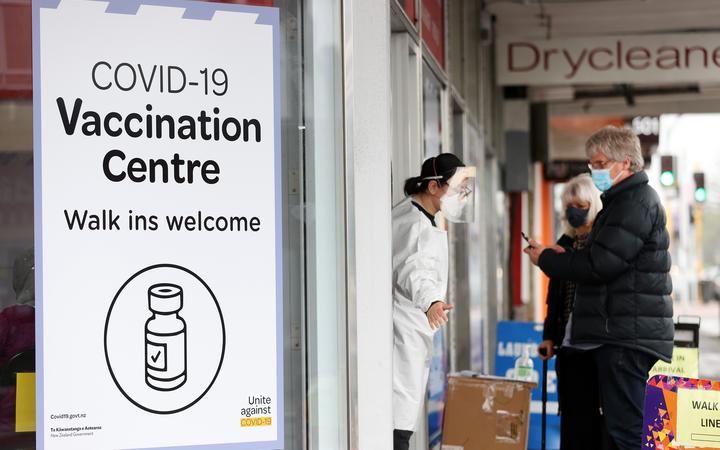Auckland’s district health boards (DHBs) must take a harder line to ensure all staff are vaccinated, an expert in public health says.
 File image. Photo: 2021 Getty Images
File image. Photo: 2021 Getty Images
Covid-19 Response Minister Chris Hipkins announced on Monday that high-risk workers in the healthcare sector would need to be fully vaccinated by 1 December and would need to have received their first dose by October 30.
It includes general practitioners, community health nurses, midwives, paramedics, and all healthcare workers in sites where vulnerable patients are treated, including intensive care units.
Data released by DHBs on Wednesday shows Counties Manukau has the lowest level of staff vaccination in the Auckland region, with 92 per cent of employees fully vaccinated, and 95 percent having had one jab.
That compares to 94.3 percent of Auckland DHB staff who have received two doses and 93 percent of Waitematā DHB employees.
But University of Auckland professor of epidemiology Rod Jackson said while the region’s DHBs had done a great job so far, they needed to take a tougher stance to ensure all their staff get jabbed.
“I think Auckland’s DHBs have done amazingly well and anything over 80 percent without a mandate is good,” he said.
“My understanding is they have all worked incredibly hard to do that and they’ve worked one on one with their staff. But their job now is to ensure that anyone who holds out now is gone.”
Now DHBs had the government’s backing for mandatory vaccination for high-risk workers, the target had to be 100 percent immunisation for all staff, he said.
Some people might not like his call for taking a harder line. But he said a no jab, no job approach was one way to get the message through to people who were procrastinating, Jackson said.
“People say it is extreme, but this is an extreme situation and we’re in a race against time. If we don’t have a higher vaccination rate we are going to have a major public health crisis.”
The Association of Salaried Medical Specialists (ASMS) welcomed this week’s announcement on mandatory vaccination for health workers.
“This will give everyone working in a healthcare or hospital setting reassurance around their own personal risk and safety.” executive director Sarah Dalton said.
She said most patient-facing roles would be covered by the government’s mandatory vaccination order, but said some would need to be looked at on a case-by-case basis.
“It depends on the role and what service a person is working in,” she said. “Ending someone’s employment should be the last step.”
Speaking on behalf of DHBs in response to Jackson’s comments, Rosemary Clements, from the Central Region Technical Advisory Services (TAS), said the country’s district health boards were pleased with their staff Covid-19 vaccination levels, particularly given the fact it hadn’t been a legal requirement for most people to date.
“In Auckland and Waikato, due to the Covid-19 outbreaks in their areas, DHBs were granted a privacy waiver so they could be given information from the Ministry of Health’s Covid Immunisation Register about their staff vaccination status,” Clements said.
“We are working with the Ministry of Health on understanding the new health workforce mandate and will be working with our staff to ensure maximum vaccination rates.”
